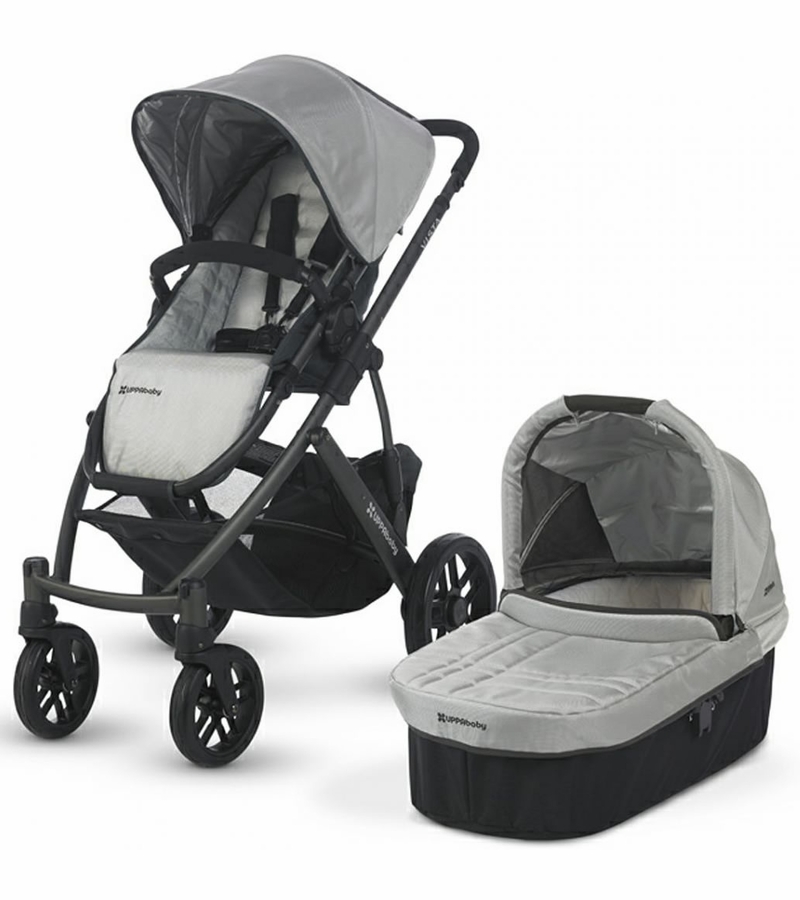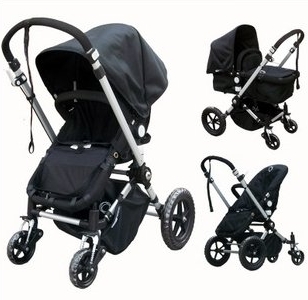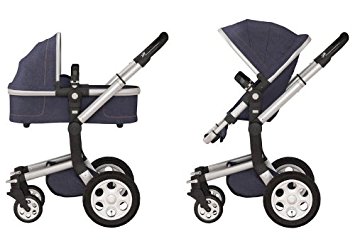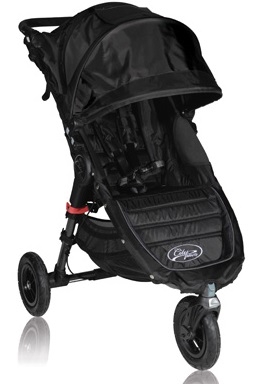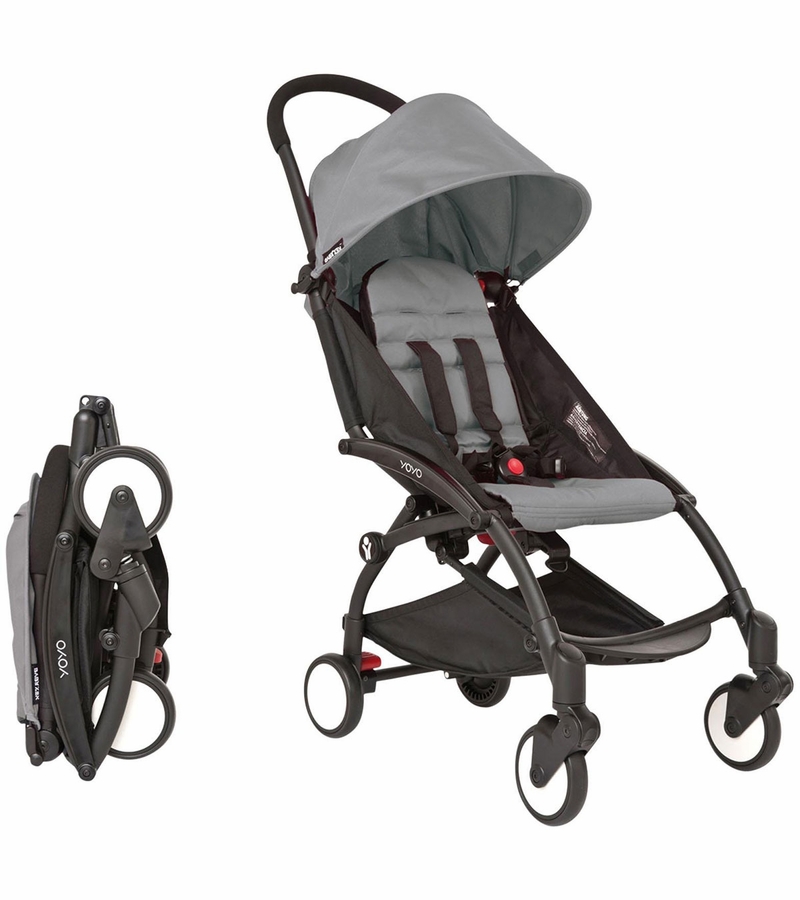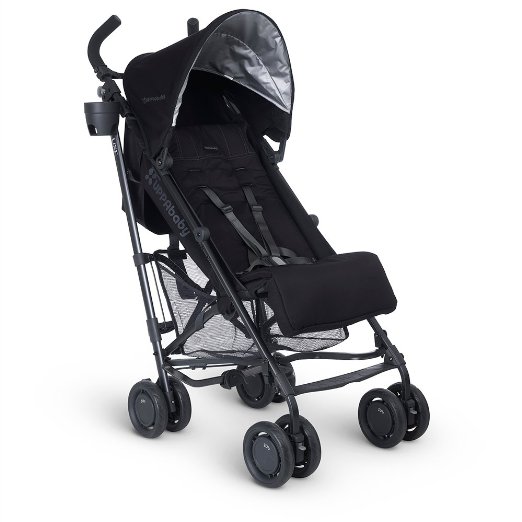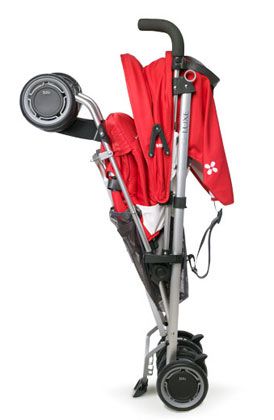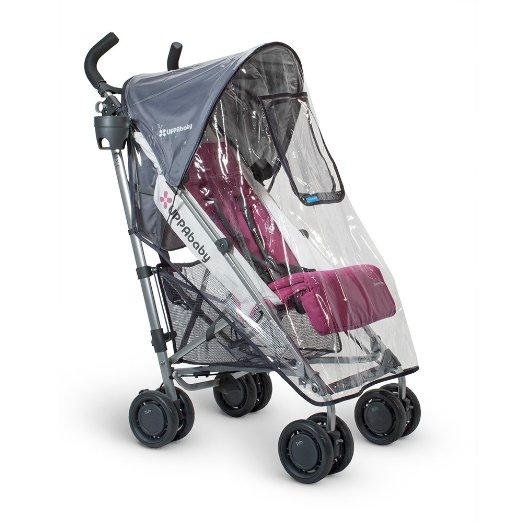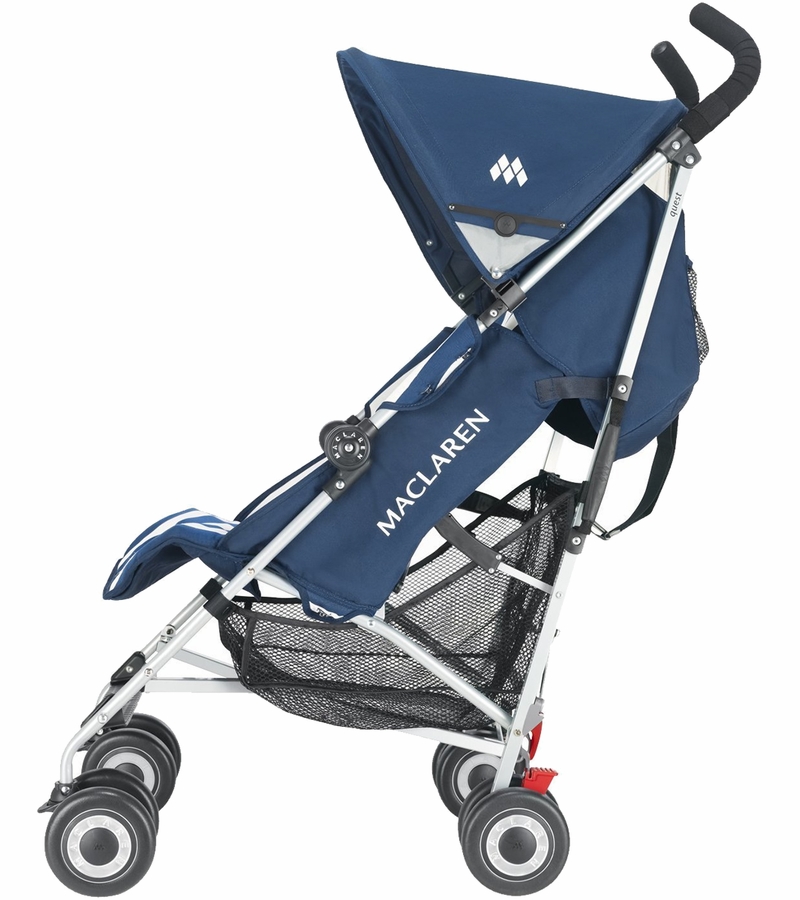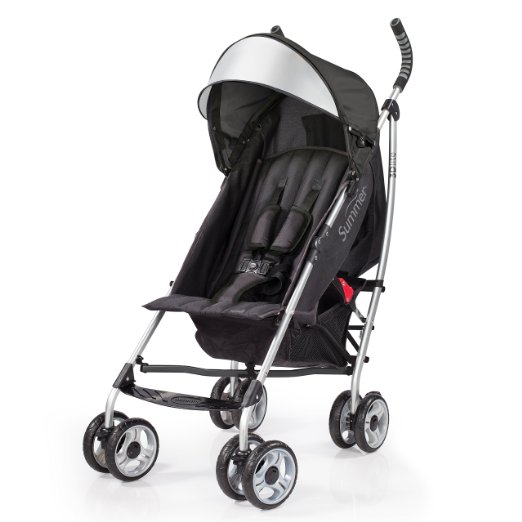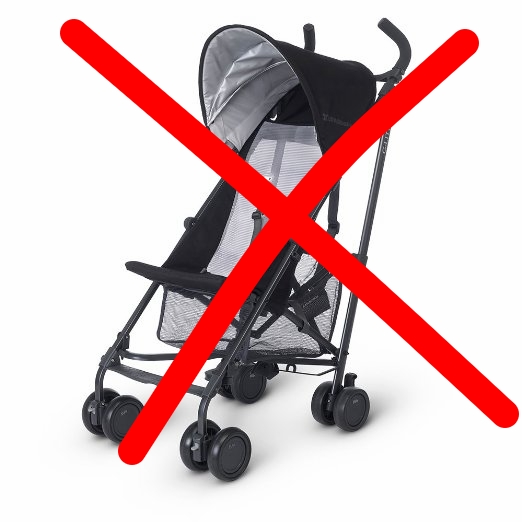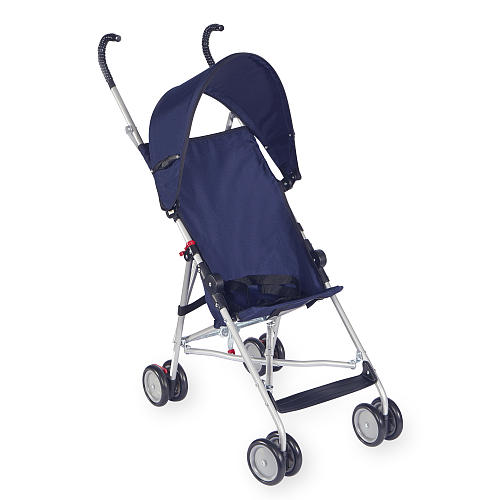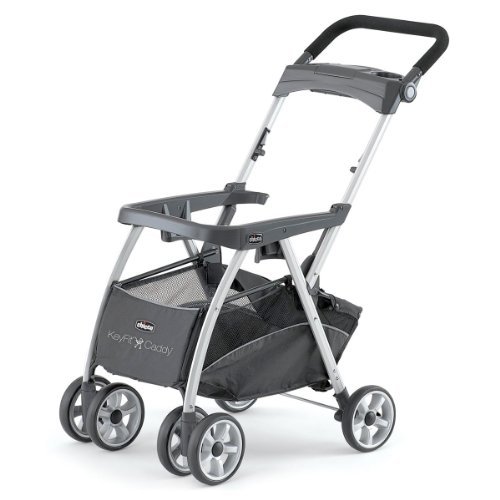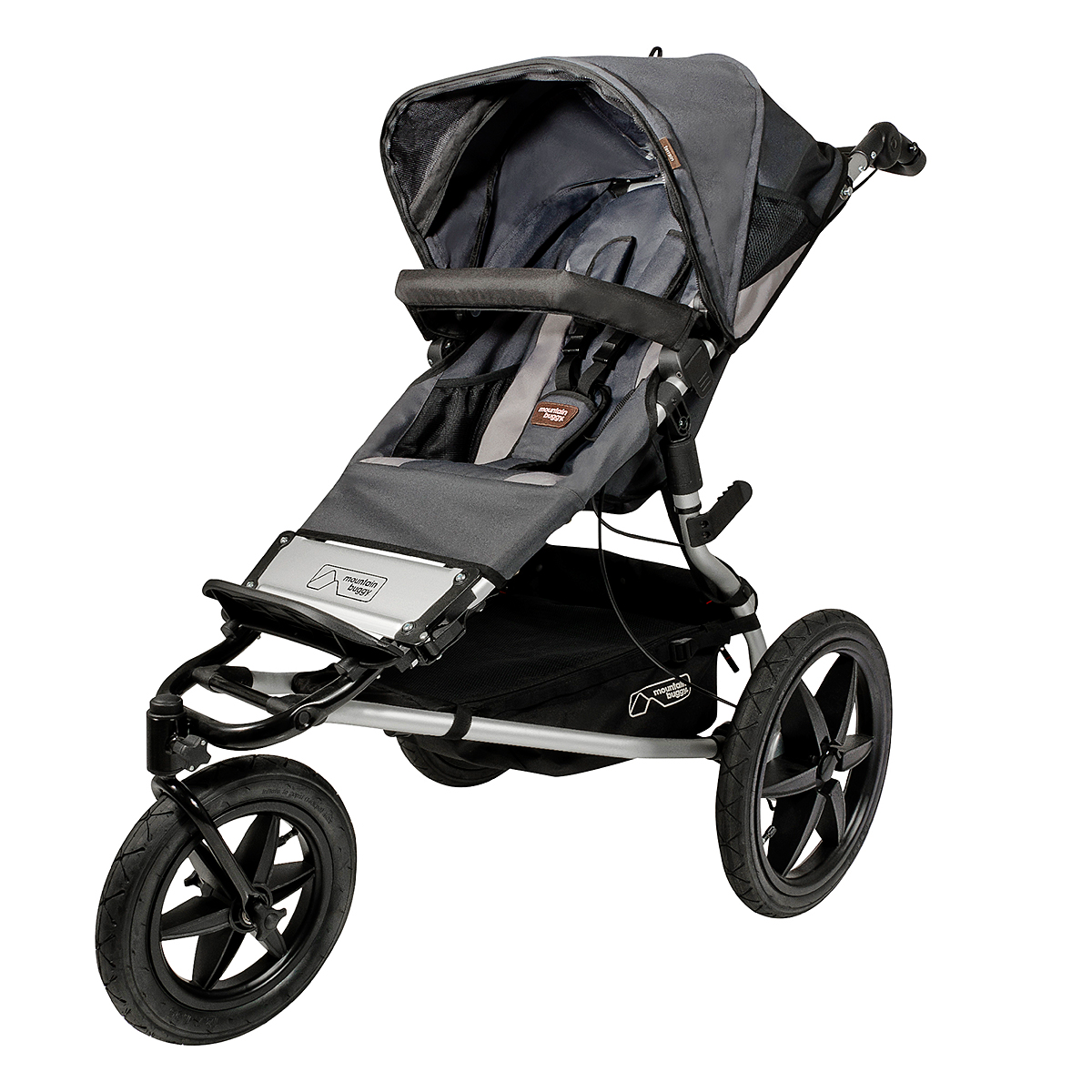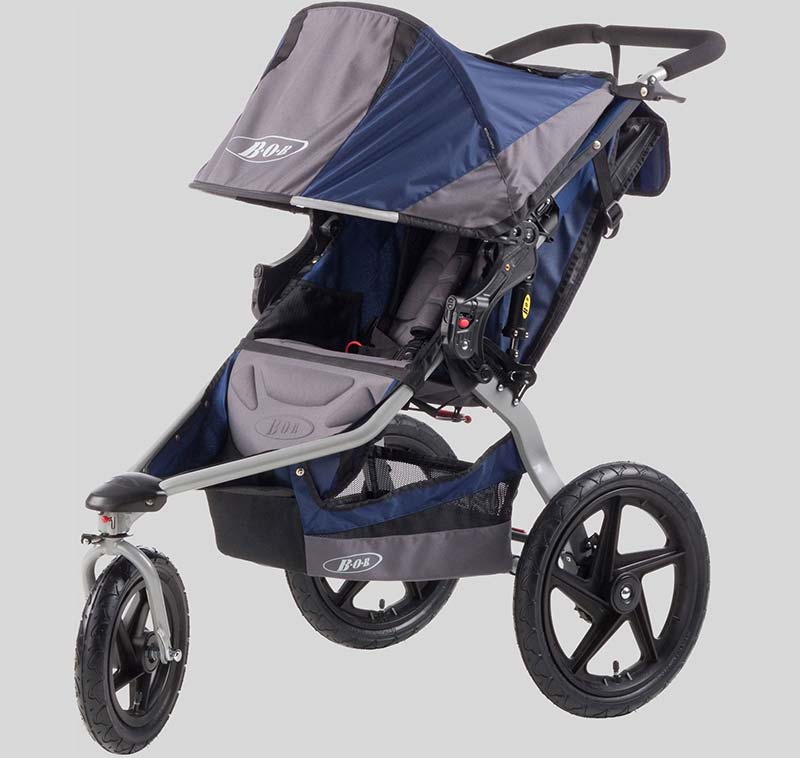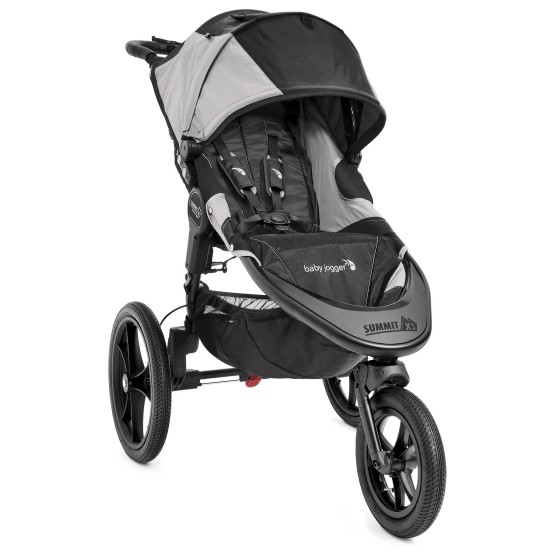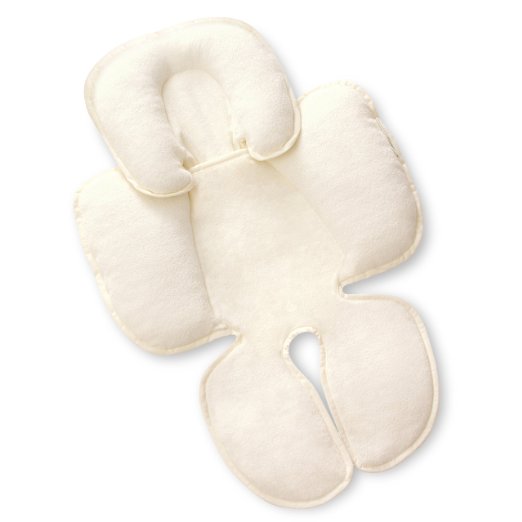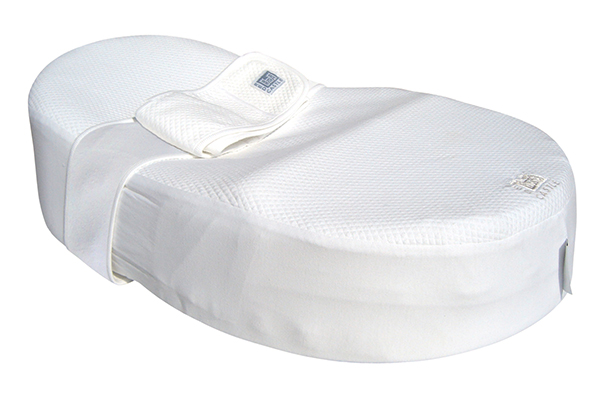strollers
Stroller choice is so personal. I highly recommend going to a big store with lots of options and testing them out in person to see how small they really are when they fold up, how easy they are to fold, how heavy they are, etc. Most people get two strollers: a big everyday stroller and an umbrella stroller, but there are some other options and combos discussed below. Things to consider include:
How much floor space are you willing to give up to a stroller?
Do you want a stroller that can accommodate a second baby down the road?
Do you want sporty wheels for hiking or jogging?
What are your storage/cargo space needs?
How does this work with your car seat?
How often are you willing to wash the cloth part of the stroller? If the answer is "not often," then I recommend getting black.
big traditional stroller systems
These tend to be big but really nice, and can be used from birth to whenever the baby is done with strollers. These stroller systems grow with the baby -- you start at the bassinet (we rarely used it, but most babies love it) and then grow into the bigger kid seat. Another differentiating point versus the umbrella strollers is that the big system strollers can easily connect to infant car seats (you usually just buy a little connector that snaps the car seat into the stroller -- very easy). Car seat connectivity is important if you will be doing any substantial amount of driving because lots of times the baby falls asleep in the car and you want to be able to transfer to the stroller without waking up the baby. Bugaboo Cameleon and Uppababy Vista are probably the most common among the parents I know, but the Joolz Geo is gaining traction recently. For people who don't want to sacrifice a ton of their home square footage, the City Mini is popular because it folds up relatively small and is meant to be a compromise or midpoint between the big stroller systems and an umbrella stroller (though it's still a lot bigger and heavier than an umbrella stroller). Of all the options out there, I am most jazzed about Babyzen Yoyo, which connects to car seats, works from infancy through toddler years, and folds up small enough to fit in the overhead bin on an airplane. Definitely worth consideration.
umbrella stroller
Umbrella strollers can be used starting around 6 months or whenever the baby can sit up. They are super lightweight, fold up easily and into compact little units (that look sort of like umbrellas because of the curve of the handles), and are excellent for travel.
Starting around 6-8 months, we jettisoned the big stroller in favor of our umbrella stroller, the Uppababy G-luxe. Other popular brands in this category are Maclaren (more expensive, but really nice) and Summer Infant (great product at a great price - $80). We use the umbrella stroller for basically everything except hiking and running. It's great for neighborhood strolls, travel, we can throw in the back of the car and take to the farmer's market and load it up with lots of things (though I'll note that it is prone to tipping over if it's loaded up and the baby isn't in seat).
If you live somewhere rainy or if you are traveling somewhere rainy, invest in a rain shield that's compatible with your stroller (we use the Uppababy G-Series Rain Shield). It takes almost zero space to pack and it's a lifesaver if you want to be out and about in the rain with a babe.
I strongly do not recommend umbrella strollers that don't recline because reclining is important for napping babies on the go. I originally got the Uppababy G-lite because it's was the most lightweight option I could find, but it's not that much lighter or smaller than other options, and the lack of reclining is a huge shortcoming. Now it lives in our basement and collects dust.
Lastly, a neat travel tip: the Babies R Us Basic Lightweight Stroller is only $20 and a great option to ship to a travel destination or buy when you get to your destination (assuming that destination has a Babies R Us). There are no bells and whistles (and no ability to recline and no storage basket underneath, notably), and it's little short (though my shorter friends have said they love the handle height), but worth consideration.
alternate option: kick the can with a car seat caddy
An alternate option to throw out there if (1) you drive a fair amount, (2) you're not sure you want to bite the bullet on a big stroller system, or (3) you want to wait and meet your baby and see how s/he feels about strolling (you might end up with a baby that strongly prefers a carrier, as we did): just start off with a car seat caddy. The Chicco Keyfit Stroller Caddy is designed to fit with the Chicco KeyFit (the top Consumer Reports infant car seat), it's a great price ($100), folds up very small, is super lightweight, and has a large storage basket underneath. A lot of people prefer this set-up for air travel travel in particular because this way you have your car seat with you when you get to your destination, and then you just fold up the little caddy and your stroller is all set too.
sporty strolling
I got the Mountain Buggy Terrain dedicated jogging stroller based on a rec from Runner's World. The seat reclines fully flat so I used it starting at just a couple of weeks and it should last through the toddler years. I love it when I'm jogging with it, but it's big and bulky, so I don't love hauling it up and down from the basement or packing it in the car. Other popular jogging stroller brands are B.O.B. and Baby Jogger. All of that said, it sounds like the actual dream for the outdoor parent is the Thule Chariot, which converts between running stroller, bike trailer, and cross country ski trailer.
accessories
Many strollers come with accessories or you can buy them as add-ons. Some popular/useful ideas below:
Infant head and body support pillow like this one by Summer Infant for when your baby is tiny and needs help staying in place
We jammed a Cocoonababy in our stroller bassinet and it's super cozy and a good defense again back-of-head pressure
Cup holders for adult use
Snack tray with sippy cup holder
Rain cover
Storage bag (or a Gate Check Bag) for travel to protect your stroller from the filth of a plane's cargo bin
